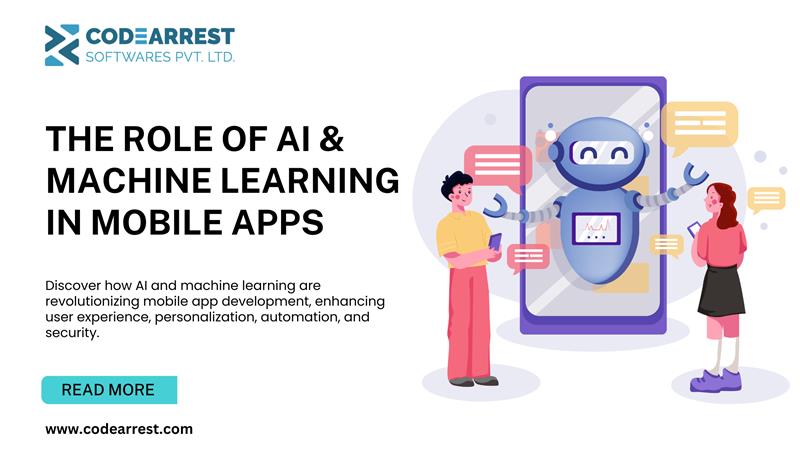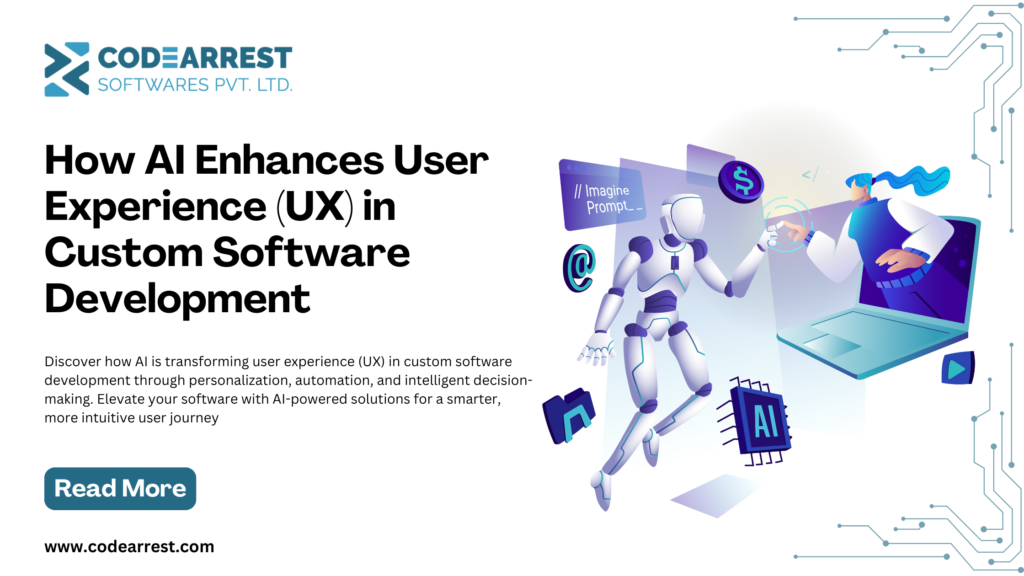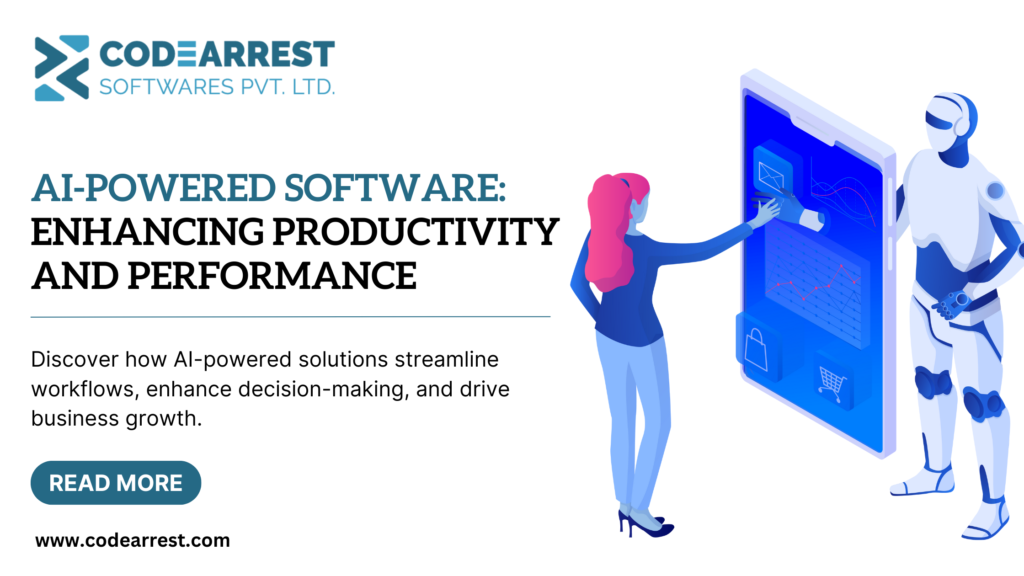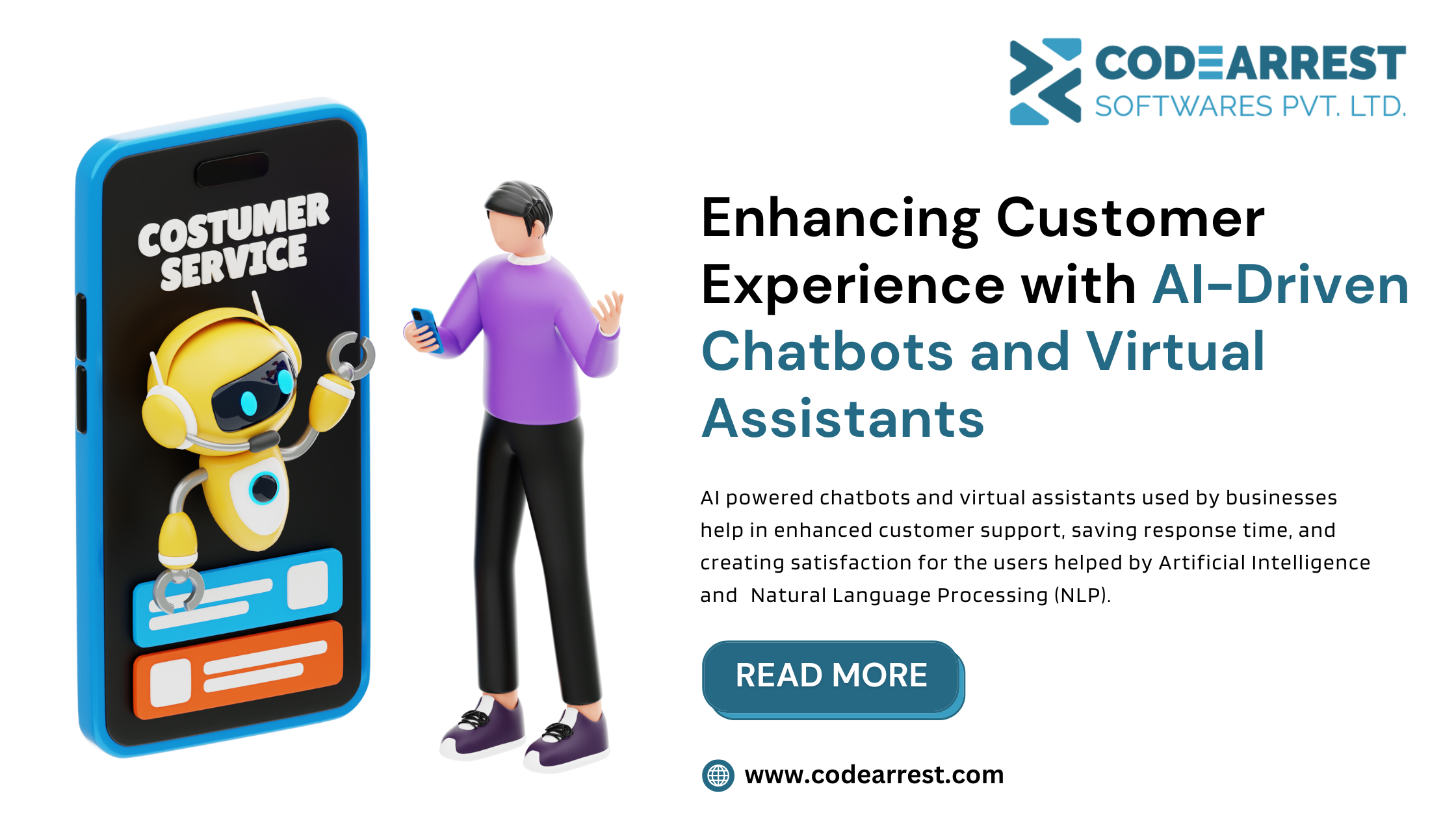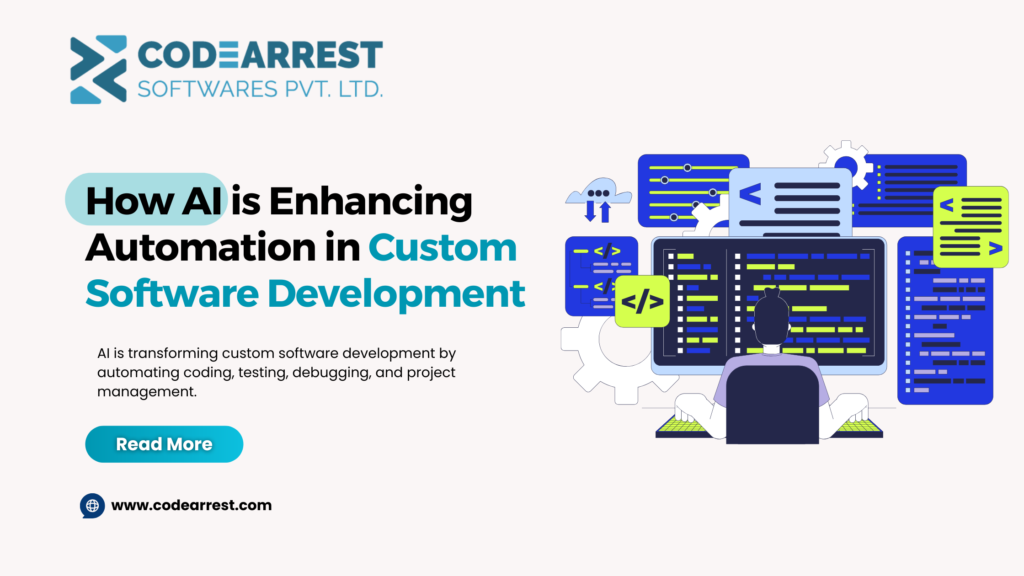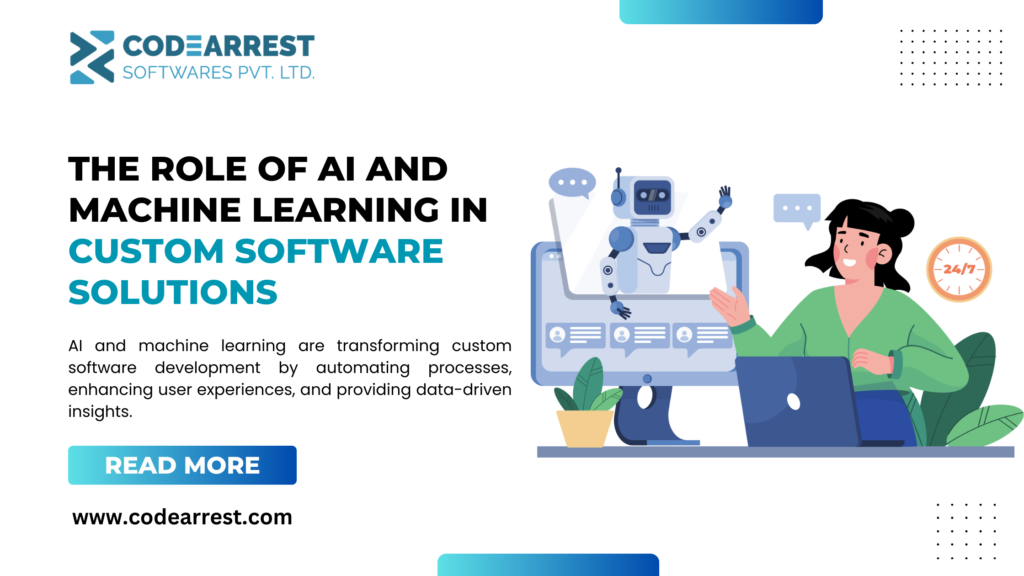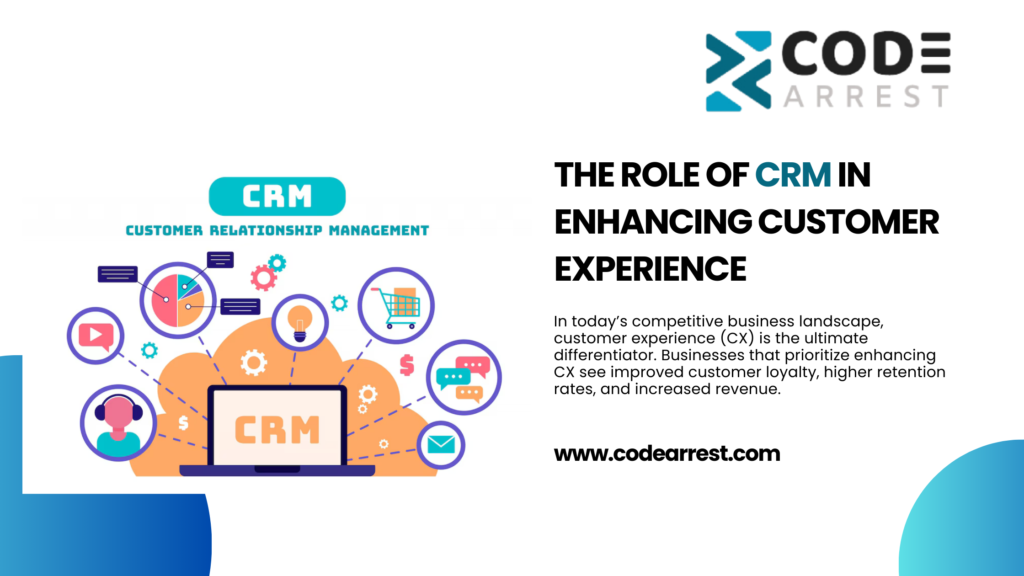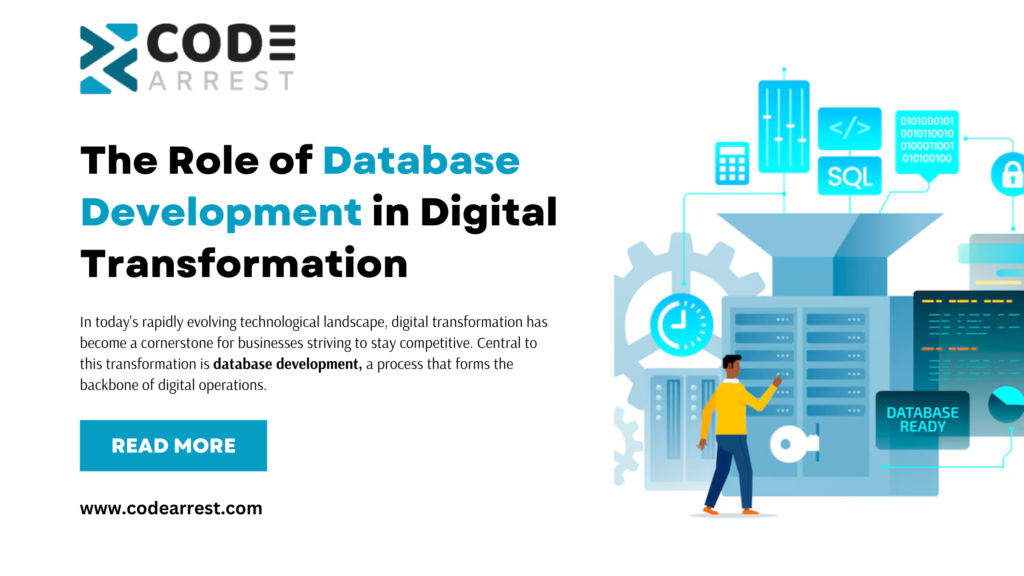The Role of AI & Machine Learning in Mobile Apps
Introduction Mobile App Development has undergone tremendous changes in the recent digital world due to the amalgamation of Artificial Intelligence (AI) and Machine Learning (ML). AI-Powered Mobile Applications punctuate the User experience, making the apps Smarter, Efficient, and Personal. AI and ML are radically changing the way the users interact with mobile applications starting from voice assistant applications like Siri and Google Assistant, to recommendation engines on Netflix and Amazon. This blog discusses the effects of AI and ML in Mobile App Development, their major applications and the benefits that these advantages. The Growing Impact of AI and ML in Mobile App Development Businesses are adopting new technologies such as AI and ML, which is why businesses are using AI-driven mobile applications to improve their efficiency and user satisfaction. One of the potential segments that are expected to make the latter part of the table is AI since recent studies indicate the global AI market in mobile apps is expected to grow massively making it one of the key components of future Mobile App Development trends in upcoming period. AI and ML help you not only enhance applications’ features but also help developers build insightful, data-driven, and automated solutions. Key Applications of AI & ML in Mobile Apps 1. Personalized User Experience By analyzing how users behave, what they like, and how they interact with the application, AI allows mobile applications to create personalized experiences. AI-powered recommendation engines are utilized by software such as Netflix, Spotify, or Amazon to personalize content, music, products, etc. That improves the engagement and increases the retention of users. 2. Chatbots and Virtual Assistants AI-powered chatbots and virtual assistants offer immediate customer support services that help web creators engage users better. Mobile applications integrated with AI-driven bots can answer queries as well as provide recommendations and resolve issues efficiently. Mobile interactions have already been redefined with popular AI assistants like Siri, Google Assistant and Alexa. 3. Voice and Image Recognition The AI-powered voice recognition technology of Apple’s Siri and the Google Voice Search, which enables users to interact with mobile apps without having to touch the screen. Likewise, image recognition in the form of Google Lens. Apps such as Snapchat allow the user to search, shop, and engage visually with minimal obstacles. 4. Predictive Analytics for Business Insights Artificial intelligence (AI) and machine learning (ML) enable predictive analytics that assists businesses in analyzing user behavior and predicting future trends. It allows businesses to refine their marketing efforts, increase customer loyalty, and make better-informed decisions. Elements of this latter are already present in e-commercial apps, such as Amazon, which use AI-powered predictive analytics to recommend products and predict sales. 5. Enhanced Security with AI-Powered Authentication The app security has been enhanced significantly by AI-powered security features like fingerprint scanning, facial recognition, and behavioral biometrics. AI-based fraud detection systems help banks and financial institutions to detect and prevent fraudulent payments, ensuring secure mobile banking experiences. 6. Automated Content Creation Several AI content creation tools that let businesses create relevant and engaging material with little or no effort. Mobile applications such as Grammarly and QuillBot apply AI in grammar suggestions, paraphrasing, and content recommendation, therefore improving the productivity of the user. 7. Augmented Reality (AR) and AI Integration Some examples of innovative applications in gaming, e-commerce, and real estate have sprung from the combination of AI and AR in mobile apps. For example, artificial intelligence (AI) powered augmented reality (AR) applications such as IKEA Place can locate furniture in a customer’s property location and enhance the online shopping experience for customers even before they make a purchase. Benefits of AI & ML in Mobile App Development 1. Improved User Engagement Mobile apps aided by AI provide tailored experiences for users, resulting in enhanced user contentment and interaction. Predictive text, smart replies, AI-driven notifications, etc. will improve user interaction ultimately resulting in higher app retention rates. 2. Faster and Smarter Decision-Making The AI algorithms analyze terabytes of data in real-time and make decisions in the mobile apps that tap on their models. In finance apps, for example, AI-based systems examine the trends of the stock market and give recommendations on investment. 3. Increased Efficiency and Automation With AI, repetitive tasks are automated, thereby limiting manual intervention and making way for efficiency. Mobile application AI-powered automation allows the business to keep the operations streamlined which saves time and resources. 4. Enhanced Security and Fraud Prevention We often have sensitive information on mobile applications, which increases the risk of cyber threats and fraud. AI fraud detection algorithms also analyze user behavior and detect anomalies that can render security breaches impossible. 5. Cost-Effective Development and Maintenance AI automates testing, debugging, and quality assurance and has streamlines the app development process. Thus, decreasing development cost and boosting app performance, making Mobile Application Development more efficient and cost-efficient. Future of AI & ML in Mobile App Development In app development, AI offers great potential for the future, as new models in deep learning, natural language processing (NLP), and AI-driven automation continue to emerge. AI-powered integration with the emerging technologies such as 5G, IoT, blockchain; would also empower the mobile applications for enhanced functionalities. Businesses using AI inside their mobile apps will get a competitive edge, delivering innovative and intelligent solutions to their users. Conclusion When it comes to Mobile App Development, AI and ML are keeping on redefining the mobile app experience smarter, more intuitive, and very productive. AI-driven mobile applications are revolutionizing industries across the globe, offering personalized user experiences to improved security. To utilize AI and ML for delivering the best mobile applications, businesses need to keep pace with the ever-evolving competitive mobile application industry. So, are you poised to make an AI-powered mobile app? Contact our professional Mobile App Development team at CodeArrest and elevate your business! Contact us: +91 70738 99493 Info: sales@codearrest.co.uk
The Role of AI & Machine Learning in Mobile Apps Read More »

